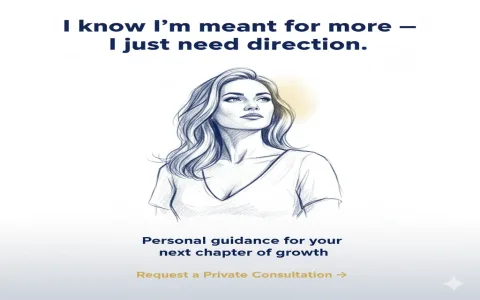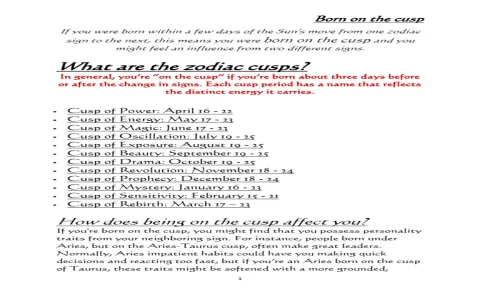The Day I Realized I Was A Total Mess, And Why I Needed To Become A Virgo
You know, for years, I scoffed at the idea of being overly detail-oriented. I was the ‘big picture’ guy. The one who said, “Just get it done, we’ll clean up the specifics later.” That mindset wasn’t charming; it was a total disaster waiting to happen. And boy, did it happen.
I’ll tell you exactly what pushed me over the edge. About three months ago, I was wrapping up a massive consultation project—six figures, biggest deal of the year. I had drafted the final agreement, signed it, sent it off. Everything was smooth. Except, I had mentally checked out right before hitting ‘send.’ I failed to notice a tiny, one-line clause hidden on the third page of the appendix that shifted the liability structure if the project timeline slipped by even 48 hours. I skimmed it. I didn’t read it. I assumed it was standard boiler-plate.
Two weeks later, the client delayed the launch due to their internal tech issue. Standard stuff, right? Except that one line I skipped cost me nearly 20% of the entire contract value in penalties. Twenty percent! Just because I thought I was too smart or too busy to check the damn fine print. I felt like a complete moron. That afternoon, staring at the deduction, I swore to myself: I needed to stop operating like a chaotic Gemini and start operating like a rigorous, detail-obsessed Virgo. I didn’t care if I was born in August; I was going to make myself a Virgo.

So, I didn’t just read some article; I designed a strict, five-part training program. I committed to practicing these five specific habits daily, treating them like a non-negotiable mental workout. And here is exactly how I tackled implementing them, and what immediately happened.
Phase 1: Conquering the Chaos with Mandatory Review
My first target was precision, the kind of focus that ensures you never miss a liability clause again. I called this the 15-Minute Detailed Review (The Triple Check). Before I submitted anything—email, invoice, even loading the dishwasher—I forced myself to stop, sit back, and physically review the items three times. I used a checklist, which felt insanely tedious at first.
I remember trying to check a presentation I had worked on for four hours. I was exhausted, ready to hit ‘send.’ The clock said 7:30 PM. I forced myself to start the review. First pass: look for tone and flow. Second pass: grammar and data accuracy. Third pass: format and consistency. On that third pass, I discovered I had used two different font sizes throughout the deck. I had missed it for hours. If I hadn’t enforced that 15 minutes, that sloppy error would have gone straight to the executive team. The sheer friction of starting this review was brutal for the first week, but catching small errors felt like pulling tiny splinters out of my future reputation.
Phase 2: Building Structure, Brick by Brick
Next up was organization. My physical workspace mirrored my mental state: a junk drawer exploded onto a desk. The habit I launched was the Daily ‘Everything in its Place’ Rule. The rule was simple: before my workday ended, everything had to be filed, wiped down, or put away. No exceptions.
The first night, I spent 90 minutes wrestling with three months of receipts and charging cables. I was sweating, cursing myself for letting it get that bad. But when I walked in the next morning, and my clean desk—I mean, really clean, I could see the wood grain—was waiting for me, it fundamentally changed how I approached the day. It wasn’t about being tidy; it was about reducing friction. I stopped wasting 10 minutes looking for that one specific notebook. That alone probably bought me an hour a week.
Phase 3: Sharpening the Blade and Planning The Attack
Virgos are self-improvers, always honing their skills. I instituted the Mandatory Skill Refinement Hour. This wasn’t leisure reading; this was focused, measurable learning. For me, that meant finally digging into complex database queries I had avoided, and mastering advanced pivot tables in Excel. I blocked 60 minutes, three days a week. If I missed it, I doubled it the next day. No excuses. I treated it like paying a debt.
Simultaneously, I attacked scheduling chaos with the Hyper-Specific Planning Log. I threw out the vague to-do lists. I started logging tasks not just as “Write Report,” but as “Draft executive summary, 9:00 AM – 9:45 AM, focusing on Q3 financial impact.” I started using a physical whiteboard, mapping out the next 72 hours down to the 15-minute slot. It felt psychotic at first, the overhead was high, but damn, did it obliterate procrastination. When a task has a defined start and stop time, you don’t debate whether to do it; you just execute.
Phase 4: The Social Virgo—Proactive Helpfulness
The fifth habit was the trickiest: the Proactive Help/Feedback Loop. Virgos are often pegged as critics, but the healthy side of that is anticipation—seeing flaws or needs before they materialize and stepping in to fix them. I shifted my focus from reacting to requests to proactively identifying where my team or partner might be struggling.
I started sending emails saying, “Hey, I noticed you mentioned the timeline was tight; do you need me to review that draft tonight so it doesn’t wait until morning?” I wasn’t waiting for them to ask. Initially, people were suspicious, like I was trying to micromanage them. But once they saw I was just trying to smooth the path—literally finding the roadblocks before they hit them—the trust built up fast. That proactive mentality is the true power of a functioning Virgo: fixing problems before they become problems.
It’s only been three months, but the difference is night and day. I don’t feel like I’m constantly rushing to put out fires. I feel like I finally have a structure I can trust. Did I stop being a ‘big picture’ guy? Hell no. But now, when I paint that big picture, I know the foundation beneath it is solid, measured, and built using the exact right grade of steel. And I didn’t lose another twenty percent. That’s the real win right there.







